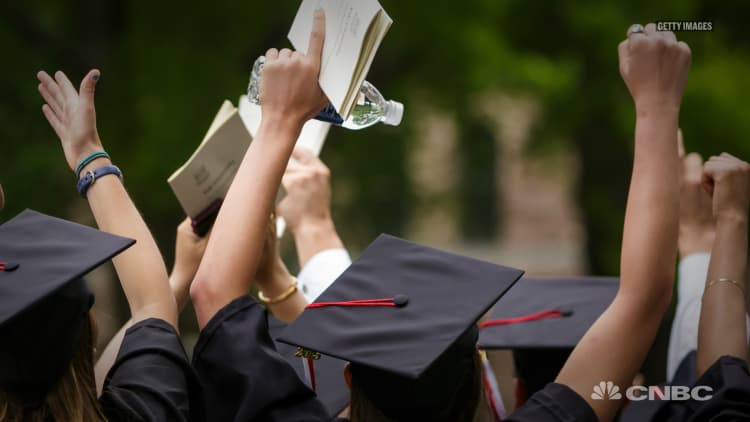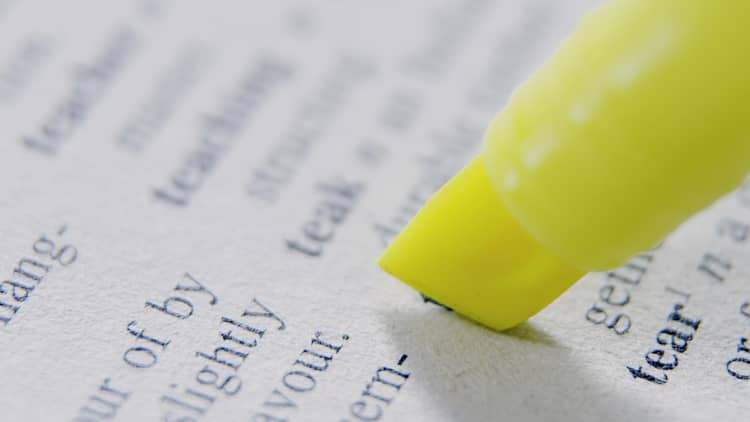No matter what standardized test you are taking — the SAT, GRE, MCAT or LSAT — studying can be a long, painful and expensive process. Taking these kinds of standardized tests can cost hundreds of dollars and classes and tutors can cost thousands.
Bhavin Parikh, CEO and founder of test prep company Magoosh, says there are several ways to cut costs but that the best one is to study more effectively the first time. "It costs money to cancel and retake tests," he says to CNBC Make It.
Parikh's company keeps extensive data on the ways students are preparing as well as the ways they are letting themselves down. In order to maximize your study time and your budget, Parikh says that all students should avoid these three common study mistakes:
1. Studying late
"By far the most important mistake to avoid is students don't start studying early enough," says Parikh. "We have seen a pattern where students might not even think about prep until a month or sometimes a week before their test."
Experts agree that studying regularly over a longer period of time is the most effective way to prepare.
Candace Thille, Stanford professor and director of learning science and engineering at Amazon explains that while cramming can work for regurgitating information, it is much less helpful for learning concepts and skills that are necessary for standardized tests.
"If you're trying to learn something because you actually want to put it into use later on, then spacing your studying and spacing your practice is much better for longer-term learning," she says.
"It's really hard to get familiar with new concepts, a new test or even the format of a test in a weeks time. Especially when you have life in the way," explains Parikh. "We would recommend you prep three to six months in advance and have a dedicated structure and dedicated time."
2. Ignoring your mistakes
A second common mistake that students make when they are preparing for standardized tests is they move on too quickly when they make errors.
"Students don't review their incorrect answers," says Parikh. "They just get it wrong and are like, 'Well I got eight out of 10 on this little quiz I did. I'm good,' rather than digging into why they missed those two."
By not learning more about their mistakes, students are leaving valuable points on the table. Most test prep systems offer thorough explanations of each question which can help students understand where they went wrong.
"We have video explanations for each question and we try to encourage students, if you miss a question or if you guess and got it right, you should really watch that video explanation," he says.

3. Sticking to your strengths
The third mistake that Parikh says studiers should avoid is one he has made himself: staying in your comfort zone.
"I was personally guilty of this when I was studying both for the SAT and the GMAT," he says. "I was more math-oriented, so I would find math a little more exciting and then I wouldn't do reading comprehension because I didn't want to."
Focusing too much on the areas you already excel in is a less effective use of your time explains Parikh. "The way you can really move your score is focusing on the areas where you aren't doing as well because there you have a steep learning curve and you can actually bump that score up even higher," he says.
By working hard in the area with the most room for improvement, you can increase your overall score and make sure you are getting the most out of your study time and your money.
Like this story? Like CNBC Make It on Facebook
Don't miss:




